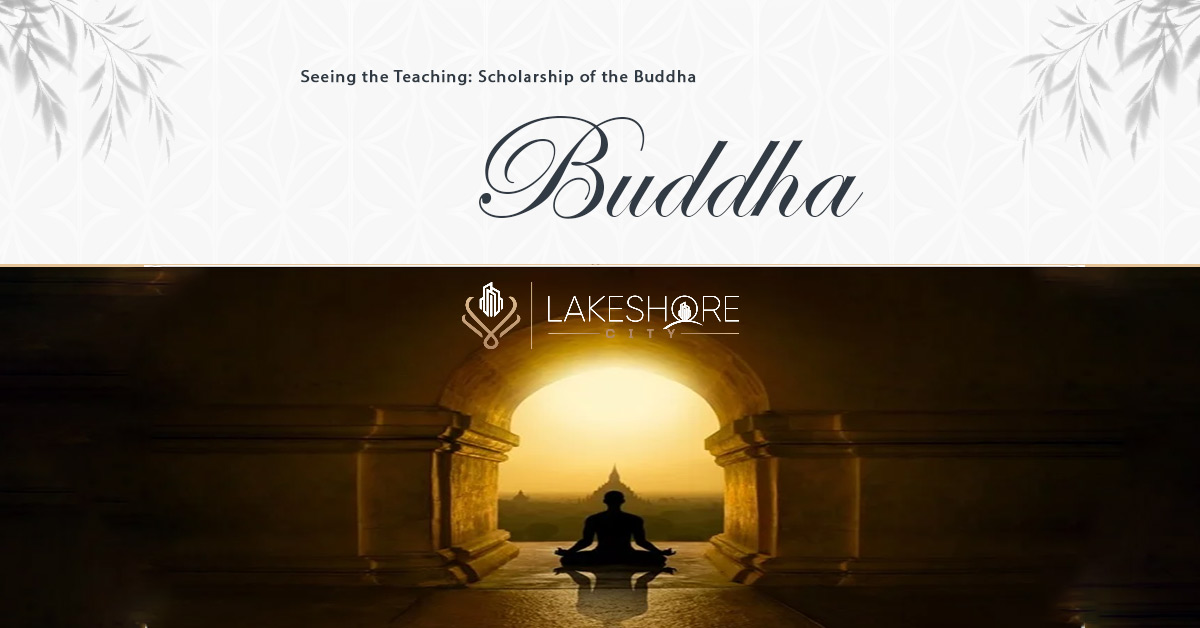According to the Buddha, “whoever sees me sees the teaching, and whoever sees the teaching sees me.” Professor and head of religion Kevin Trainor views Buddhism through the prism of a scholar, exploring time, place, relics, and ritual. David Grubin, a documentary filmmaker, sought Trainor as an academic advisor and commentator for his new film, The Buddha, showing on PBS April 7 at 8 p.m.
“I teach Buddhism as a scholar of religion,” adds Trainor, “not as a practitioner. I’m as accurately as possible understanding its historical and cultural forms. I take history seriously, and I think it limits what we can say about the historical Buddha.”
Trainor and the film’s narrator describe Buddhism as an oral tradition. Siddhartha Gautama, son of a king, is claimed to have abandoned society at 29 and gone into the forest to find truth, practicing severe meditation and asceticism until realizing the fundamental nature of existence. After enlightenment, he became Buddha, “awakened one.”
Trainor says the problem is the endless cycle of birth and death and human suffering in all its forms. After many lives, the Buddha halted his own cycle by ending attachment and desire, which he considered the primary human weakness.
“If your feeling of wellbeing and happiness,” says Trainor, “is predicated on achieving something and clutching on to it in the hope that it won’t change, you’ll be miserable. Every thing changes. No way around that. Thus, the alternative is to focus on the present, cherish it, and appreciate it in this time and place.”
Religion Meditation
Trainor’s academic study may discomfit 21st-century American converts (distinguished from devout immigrant communities), many of whom practice “pop” Buddhism. As a scholar, not a theologian, he avoids moral judgments but offers an informed perspective on Buddhism as a spiritual way of being, even a rejection of religion, focusing on its intellectual and meditational aspects.
“One of the most historically problematic conceptions,” adds Trainor, “is that Buddhism involves self-realization. It’s reaching your potential. Living well. That’s not inaccurate, but it’s an unusual development that’s not typical of ancient India.”
In The Buddha, Trainor explores Siddhartha’s meditation journey, which detoured him from enlightenment.
In the film, Trainor explains, “He ascends to these very rarified states of consciousness,” but it’s not permanent and doesn’t penetrate reality. These are a brief escape from existence’s predicament, but they don’t fix it.”
Trainor recommends Buddhist meditation as an alternative to a consumer culture that creates wants that can only be addressed by buying things. Traditional Buddhism emphasizes renunciation and monastic life, which conflicts with Western values.
Trainor, a renowned relic veneration expert and student of ancient India’s archeology and the cultural milieu that allowed the Buddha’s rise, wants to show that Buddhism, both historically and today in Asia, is not hostile to religious ritual and materiality. The documentary got a combined funding from the National Endowment for the Arts and the Asia Society in New York City, whose museum is hosting “Pilgrimage and Buddhist Art,” through June 20.
Relics, Veneration, Pilgrimages
Trainor: “In terms of my own commitments to teaching about religion,” “I think it’s important to understand how Buddhism is inculturated, how it is in the ground, how it’s about relics and veneration and has very much to do with practices, not just meditation but veneration.”
Pilgrimage is profoundly rooted in Buddhism. The Buddha himself advised people to carry and enshrine his bones, saying, “their hearts will be serenely enlightened.”
Trainor says, “It’s very much about stupas, relics, places with religious significance marked out across Asia,” “places that attract people.”
The biographical film, which Trainor says “artfully created,” features narration by Richard Gere, footage from India, graphics of mythological situations, and comments from historians and others. Are Trainor’s object veneration points in the film?
“They’re in the documentary,” he says. “I think many will ignore them. It’s more convincing when psychiatrists and poets proclaim, ‘You are the Buddha.'”
However, Trainor, who focuses on Theravada Buddhism, may be poetic.
“In a sense,” Trainor continues, “the Buddha is not supreme. Ultimate Buddha is Buddha-ness. It’s everywhere. Always there.
Our Featured Article:
Read More: Modern World Discovered the Ancient Truths of Buddhism
Don’t miss the chance to invest with Lakeshore! Secure your investment today by investing your financial investment with Lakeshore in the following available options like Lakeshore City, Lakeshore Club, and Lakeshore Farms.
For More updates, please Contact +92 335 7775253 or visit our website https://lakeshorecity.com/
Lakeshore City is the upcoming elite lifestyle at Khanpur Dam. Offering no parallel amenities for the members and owners of distinguished farmhouses.
Become Part of Luxurious Lifestyle
Contact: 0335 7775253
